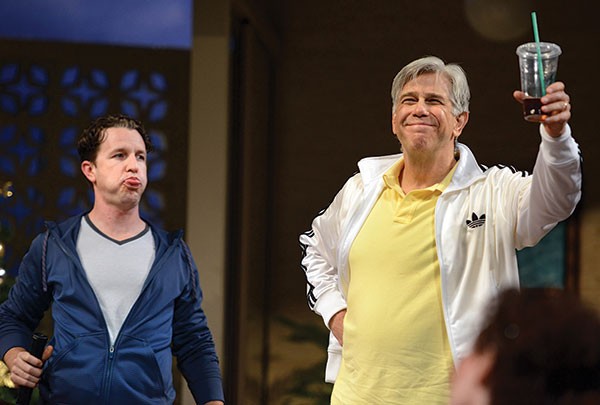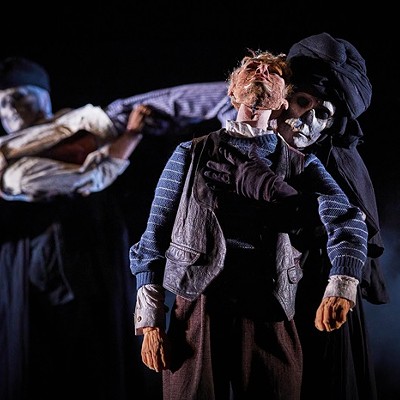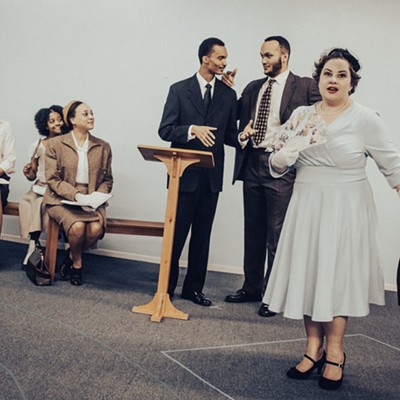Had you been seated near me at Pittsburgh Public Theater's production of Other Desert Cities, you'd have noticed a puzzled look on my face. Here's why:
Edward Albee won the 1967 Pulitzer for A Delicate Balance, a brittle comedy/drama about a meticulous suburban husband and wife — and her alcoholic sister houseguest — whose angry, divorced daughter comes home for a visit. In 2012, Jon Robin Baitz almost won the Pulitzer for Other Desert Cities — a brittle comedy/drama about a suburban couple and alcoholic sister welcoming home an angry daughter. Oh, and both plays feature a dead brother, too. And just in case we've missed it, at one point the mother actually describes their family system as "a delicate balance."
So what the hell is Baitz's point? If you're going to, um, borrow so heavily from another work, borrowing from an all-time great can't help but invite unflattering comparisons. Delicate Balance is about ineffable loneliness and the existential void. Other Desert Cities is a family drama with uninteresting secrets and more than a touch of melodrama.
Baitz supplies a political undercurrent — the parents are right-wing, the children are lefties — but it feels extraneous. In a heated exchange about family dynamics, someone suddenly chirps in about the Iraq War or Dubya or Vietnam. I admire Baitz's politics, but was less impressed with his dramaturgy.
The Public production features five solid actors — I particularly enjoyed John Patrick Hayden's bitchy underplaying of the youngest brother — but something seems a bit off-kilter. Rob Ruggiero directs Helena Ruoti and James DeMarse to play the parents as obviously broken and already disintegrating. So when Pilar Witherspoon attacks as the angry daughter, she mows them down. Ruggiero wants us to have sympathy for the parents from the start, a not-indefensible choice. But it makes Witherspoon seem monotonously whiney and ungrateful, giving the three of them nowhere to go dramatically. As the drunk sister, Susan Cella has a clutch of very funny lines and plays them impeccably.
And I'm saving the best for last: Michael Schweikardt's set design for the Palm Springs family living room. As a model of mid-century modern it is, quite simply, a masterpiece.















